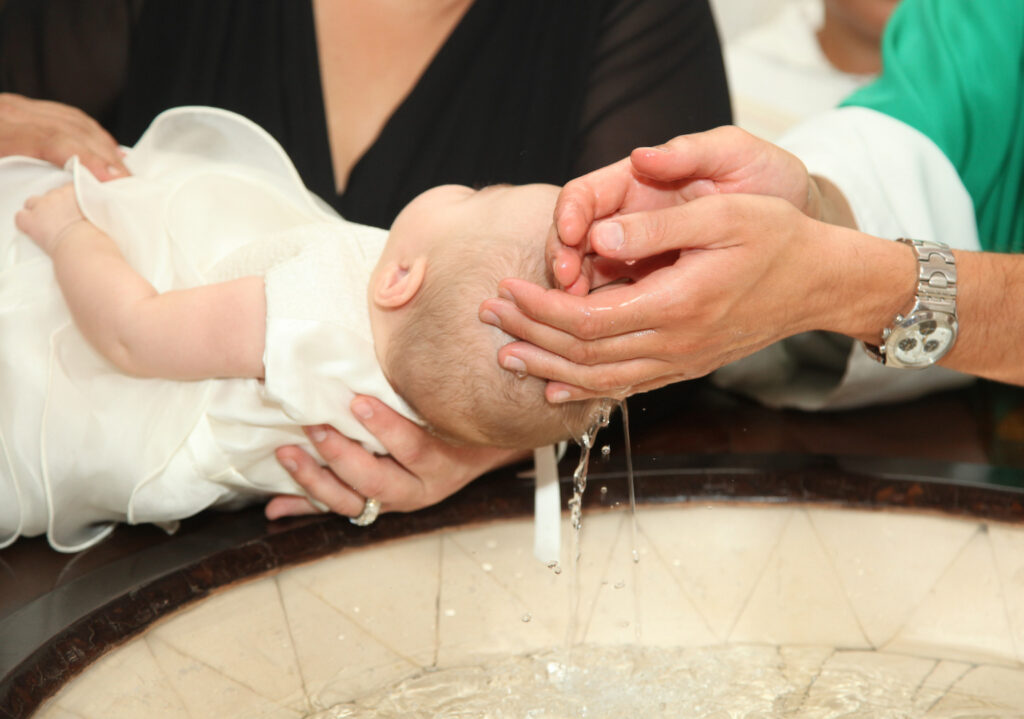Question:
My wife gave birth to a beautiful healthy baby boy about five months ago. He has not been baptized yet due to concerns around COVID-19. Our current plan is to wait until grandparents, godparents, immediate family members and spouses as well as ourselves have had the opportunity to get vaccinated — which, as you know, may still not happen until the summer or later.
Has the Church made an official statement on how to handle situations like this or have an opinion? Does our approach make sense, or should we consider changing it? (Louisville, Kentucky)
Answer:
I congratulate you on the birth of your new baby boy. This is surely an exciting time for you and your wife — and for all of your family. I can well understand your desire to have everyone together to celebrate the good news. But I would surely suggest that you have the child baptized soon and not wait for months until everyone has the chance to be vaccinated.
Here’s the Church’s teaching on this: The Code of Canon Law, the official “rulebook” of the Church, says, “Parents are obliged to take care that infants are baptized in the first few weeks” (No. 867).
Several months is just too long to wait for the child to be missing the graces and blessings that come with the sacrament. Parents have grown a bit too casual about this — perhaps due in part to what the Church is currently saying about limbo.
It used to be the common belief of Catholics that children who died before being baptized went, not to be with God in heaven, but to a state of natural happiness called limbo. But in 2007, the Church’s International Theological Commission, with the approval of Pope Benedict XVI, concluded that there are “theological and liturgical reasons to hope that infants who die without baptism may be saved … even if there is not an explicit teaching on this question found in Revelation.”
That “hope” is just too chancy. If it were my own kid, I’d want him baptized as soon as possible. And don’t worry — a parish will take caution in making sure that the baptismal ceremony is safe.
Social distancing will be observed for those you feel comfortable inviting — and I notice, for example, that the Catholic cathedral in Birmingham, Alabama, promises on its website that the parish rector “will disinfect the holy water font, wiping down all surfaces, and fill it with fresh water before the ceremony.”
Question:
Years ago, our parish in a northern Wisconsin farming community celebrated Rogation Days. If I remember correctly, these were the three days before Ascension Thursday, which often came during or right after planting time.
At Mass, we would pray for good weather and a bountiful harvest. The priest would even visit the farms and bless the fields. I’m no longer in farming, but I was wondering: Does the Church still observe Rogation Days? (West Milwaukee, Wisconsin)
Answer:
The marking of Rogation Days, set aside to bless the fields, has a long history in the Church. Rooted in the Latin verb meaning “to ask” and traditionally tied to the spring planting, the days were first instituted in the fifth century by a bishop in France whose diocese had suffered greatly from pestilence and other natural disorders. By the ninth century, the observance had been extended to the universal Church.
In 1969, when the Church’s liturgical calendar was revised, the celebration of Rogation Days became optional, at the discretion of national conferences of bishops — primarily due to the fact that the Western world had become increasingly industrialized, with the primary focus no longer on agriculture and the changing of the seasons.
In some rural communities, though, the celebration continues to be observed, particular in certain parts of Europe, and a May 18, 2020, posting by the bishop of the Diocese of Harrisburg in Pennsylvania suggested that this might be an opportune time to revive the Rogation Days, given the plight of so many farmers who are struggling to make a living.

